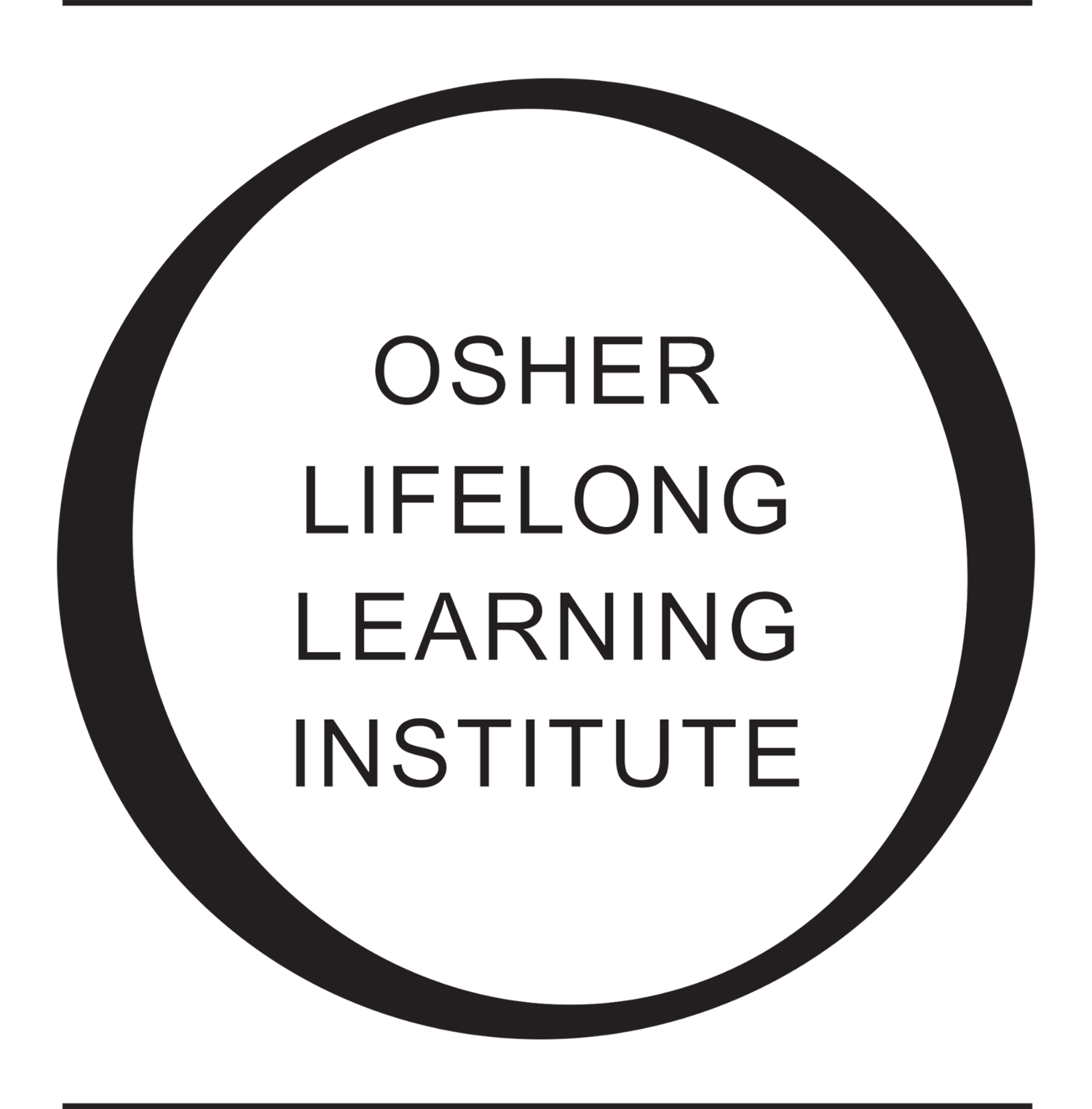
Consider Another Course?
Check out the Open Course List (link in sidebox) and these notable Fall 2019 courses. Several popular courses have been moved to Mellon Institue Auditorium to accommodate the demand, including a couple 1 and 2-day courses.
The Fall 2019 term begins Tuesday, September 3. Click the title to read about the course.
2979:Verbal Self Defense For Women (Jackie Umans)
Schedule : 1 session, Tue, Oct 24, 1:00 PM - 2:30 PM;
Location : Friends Meeting House
Your voice is your first line of defense against being mugged. Muggers will often “interview” their victims beforehand by saying or doing something intimidating. Knowing what to say is not the same as knowing how to say it, and the words we choose are not nearly as compelling as the way we choose to say them. If you are soft-spoken and polite in responding, the mugger is more likely to believe that you would make an easy target. We all have within us an inner fierceness that can be used to knock a mugger off his stride. The purpose of this course is to provide a safe place for practicing how to say “No!” in a way that maximizes our chances for driving away the mugger.
3019:Writing For Self Discovery (Bruce Goldstein)
Schedule : Tues 1:00 PM - 2:30 PM
6 sessions; starting 10/29/2019, ending 12/3/2019
Location : Wean Hall 4707
In this course we will be writing essays about things that have happened in our lives and the feelings and emotions we have experienced along the way. You will write a total of five essays (900-word maximum), on topics such as memories from growing up, decisions that affected your life, emotional experiences, and something you are dealing with right now. Register only if you are committed to writing weekly essays, are open to giving and receiving constructive feedback, and can meet the course.
3109:Tour of ALCOSAN (Zelda Curtiss)
Schedule: 1 session, Friday, October 11, 11:00 AM-1:00 PM at 3300 Preeble Ave, Pittsburgh 15233
Alcosan (Allegheny County Sanitary Authority) is the largest sewage treatment plant in Southwest PA. This course will meet at the Alcosan facility on Preble Avenue on the Northside. Alcosan staff will explain the facility to us and take us on a tour. If you have never seen a sewage treatment plant, you are in for an exciting learning experience of where our sewage goes when we flush our toilets or run our water. Together, the general explanation and tour take about 1 1/2 hours.
3035:Music of Bach (Stephen Schultz)
Schedule: 5 sessions, Tuesday, Sept 3 - Oct 9, 3:15pm - 5:15pm, Mellon Institute Auditorium
This class will be a chronological retrospective of Bach’s life and works, covering major aspects of his instrumental and vocal music. We will be discussing the principles of historically informed performance practice in relation to modern and period instrument performances of his music. We will show the musical influences that affected Bach’s work as we work our way through the cantatas and Passions, instrumental music, and finish up with the masterpieces of his final decade: B Minor Mass, Goldberg Variations, and the Art of the Fugue.
3061:Western Music in 12 Notes (Flavio Chamis)
3 sessions, Mon., Sept 9 - 23, 1:00 PM - 3:00 PM, Mellon Institute Auditorium
How is it possible for music to captivate human beings in such a visceral way? How is it possible that the whole universe of Western music is built by simply combining twelve different notes, adding rhythm, and coloring these sounds with instruments or voice? These lectures will embark on the quest of breaking down the often simple elements that composers use in order to build intricate works of artistic excellence that became some of humanity’s most expressive cultural treasures. The sessions will focus on different aspects of music, presented in a way that any person would understand, regardless of previous musical knowledge. The presentations are: “Bach and the Goldberg Variations (Sleepless in Dresden),” with an in depth view of the extraordinary architecture of this masterpiece by J. S. Bach, “Leonard Bernstein, Multitasking Musician” embracing this iconic musician as a composer, conductor, pianist, educator, writer and political activist, and finally “Interpretations: do we really need so many recordings of the same piece?” bringing a comparative study of multiple approaches to the exact same musical text played by different musicians, as well as different interpretations by the same musician.
2953:Intro to Medical Marijuana and Its Medicinal Value (Richard Greer)
Schedule : 1 session, Mon. Oct 14, 10:00 AM - 12:00 PM, Mellon Institute Auditorium
On April 17, 2016, Pennsylvania Governor Tom Wolf signed the Medical Marijuana Act into law. The new set of laws made Pennsylvania the 24th state in the U.S. to legalize medical cannabis. Medical marijuana, also referred to as medical cannabis, can be an affordable, safe, and effective alternative for many expensive, ineffective, and highly addictive prescription medicines. Learn how medical marijuana patients are finding relief of health conditions by using the cannabis plant.
2931:A Musical Retrospective Of Cole Porter (Joe Lagnese)
1 Session, Tues., Oct 15, 1:00 PM - 4:00 PM, Mellon Institute Auditorium
This course will be a one-session narrative and musical demonstration of the life and music of Cole Porter, featuring live music provided by group of eight musicians and a vocalist.
3030:On Safari In Botswana (Maria Piantanida & Earl Novendstern)
1 Session, Monday, Oct 21, 1:00 PM - 3:00 PM, Mellon Institute Auditorium
Pictures of wildlife and landscapes will be used to illustrate information about the geology, geography, climate, animals, and plants in four ecologically diverse areas. First is the rain forest created by the spray from Victoria Falls. Second is the remote region of Chobe National Park. Third is the Linyati Wildlife Reserve which encompasses an unusual geographic feature. The Savute Channel will flow for many years and then suddenly dry up, only to return again, sometimes decades later. Fourth is the Okavango Delta, the largest inland delta in the world. Within each area, variations in topography, animal populations, and vegetation create an incredibly rich tapestry of this fascinating environment.
2943:Art, Architecture, Kidney Stones... And Mathematics (Richard Wertheimer)
5 sessions, Tues., Oct 29 - Nov 26, 11:15 AM - 12:45 PM, Mellon Institute Auditorium
Great architecture, works of art, and natural phenomena all have a foundation in mathematics. Sadly, many of us are afraid of math . . . some have even been scarred by their experience with math. This course makes the basic mathematics behind great achievements accessible to everyone. We will look at the Golden Ratio and its applications in Art, Architecture, and Nature. We will study Frank Lloyd Wright’s Fallingwater, the Guggenheim Museum in New York, Notre Dame Cathedral in Paris, the art of M.C. Escher, the Pantheon in Rome, the famous Guastavino stairway at CMU’s Baker Hall and an elegant cure for kidney stones. The only prerequisite for this course is a desire to understand and appreciate the world around us.
2937:Etymologies VII: Who Knew?! (Dave Fortun)
5 sessions, Thurs., Oct 31 - Dec 5, 11:15 AM - 12:45 PM, Mellon Institute Auditorium
Who knew that the saying “Back to Square One” was originally a soccer reference? That a “Geisha” is an “art” (gei) “person” (sha)? That “Queensland” (Australia) was so named only because “Victoria” was already taken? That the “Hasbro” toy company was founded by and named after the HASsenfeld BROthers? Who knew? I didn’t. And there’s a good chance you didn’t either. Etymologies VII gives us a chance to explore these and 246 more word, name, and phrase origins, as well as the stories behind the terms. And by the end of the course, you will be able to answer, “I knew.”
